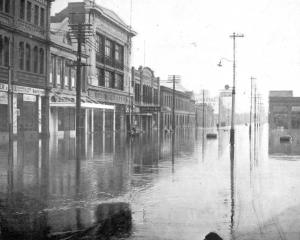

The machine, designed to replace hand type-setting with a mechanical arm, impressed Twain — a former printer’s apprentice — and he sunk not only his wife Olivia’s inheritance but also a considerable chunk of the money he had made from books such as The Adventures of Tom Sawyer and Adventures of Huckleberry Finn behind its inventor’s plans to revolutionise the printing industry.
When the Paige worked, it worked like a dream . . . but it repeatedly broke down, and for a labour-saving device, it was fiendishly difficult to operate.
Despite ambitious plans to make 3000 of the machines just 15 were built, and the whole venture proved a financial nightmare for Twain, who was forced into bankruptcy.
Determined to rebuild his fortune and repay his creditors, Twain accepted an offer from Australian entrepreneur Robert Sparrow Smythe to visit the colonies and embark on a speaking tour.
Australia was Twain’s first stop and his tour was hailed as "unprecedently successful" by the agent Hugo Fischer, who was in Dunedin on October 26 1895, in advance of Mr Smythe and his star speaker’s expected arrival in a fortnight.
Advertising for the "At Homes" began on the Monday, and the following day it was revealed that Twain would speak in the City Hall on November 6, and would follow up the next day with an entirely different dissertation.
Twain landed in Bluff on November 5 and spoke in Invercargill that night before one of the largest audiences ever assembled at the Theatre Royal, before catching the express to Dunedin.
Wednesday morning’s Otago Daily Times included a lengthy feature by Malcolm Ross (who would become New Zealand’s official war correspondent in World War 1) about his chats with Twain.
Although the ethics of the piece were a touch questionable — "the stereotyped interview is distasteful to most literary men of any ability so I discretely kept pencil and notebook out of view and the gifted author never dreamt that he was being ‘drawn out’ for an interview" — the record Ross kept of Twain’s views on his working methods, styles of writing, other people’s work, history and on New Zealand are fascinating.
The audience at that night’s "At Home" was the merriest ever seen at the City Hall, the ODT reported.
"There was apparently only one serious person in the building and that was the entertainer himself, who told his stories in a matter-of-fact way as if utterly unconscious of their drollery."
After adding one more "At Home" to his schedule, Twain was off to Christchurch, but he left behind a quote about Dunedin’s Scottish settlers which is still cited regularly today: "They stopped here on their way from home to heaven, thinking they had arrived."












